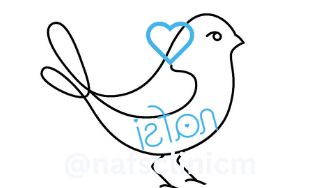ADHD Test
This quiz is here to help you reflect on whether certain behaviors in your life might be related to ADHD. It’s not a diagnosis, just a tool to better understand yourself. 😊
How to answer:
Rarely: Happens less than once a month.
Sometimes: Happens about once or twice a month.
Often: Happens weekly.
Very Often: Happens daily or almost daily.
Take your time, answer honestly, and remember—this quiz is just a way to explore your patterns. If something feels familiar, there’s always support available when you’re ready. Let’s begin! 🌟
If you'd like some extra guidance, contact our clinic to make an appointment today❣️
Click the link below to talk to a therapist🔗
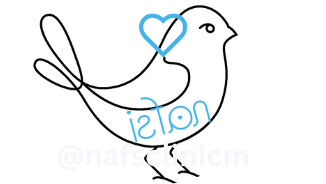
Do you often find it hard to focus on tasks, even those you enjoy?
This question asks if you often have trouble staying focused on tasks, even when they’re activities you enjoy. It’s about whether you regularly get distracted or lose interest in things that should keep you engaged. If you find it hard to maintain attention, even for enjoyable tasks, it might be a sign of ADHD.
Do you frequently lose track of time or forget to complete daily tasks?
This question asks if you often forget to finish daily tasks or lose track of time. For example, you might start cleaning the kitchen but get distracted by something else, like checking your phone, and forget to finish. Or you may miss appointments because you lose track of time. If this happens regularly, it could indicate challenges related to ADHD.
Do you feel restless or have trouble sitting still for long periods?
This question asks if you often feel physically restless or have difficulty sitting still for long periods. For example, you might find yourself fidgeting, tapping your feet, or feeling the urge to move around during meetings or while watching a movie. If this restlessness happens often, it could be a sign of ADHD.
Do you often interrupt others during conversations or blurt out answers?
This question asks if you frequently interrupt others during conversations or speak out before thinking. For example, you might find it hard to wait for your turn to talk or you blurt out answers before someone finishes speaking. This impulsive behavior can be common in people with ADHD.
Do you struggle with organization, such as keeping track of important items or planning ahead?
This question asks if you often have trouble staying organized, such as misplacing important items or struggling to plan ahead. For example, you might frequently lose your keys or wallet, or find it difficult to manage your time and keep up with deadlines. Difficulty with organization is a common challenge for people with ADHD.
Do you often avoid tasks that require sustained mental effort, such as preparing reports or completing long assignments?
This question asks if you often avoid tasks that require long periods of focus, like writing reports or completing lengthy assignments. For example, you might procrastinate on starting these tasks because they feel overwhelming or mentally exhausting. Avoiding tasks that demand sustained mental effort can be a sign of ADHD.
Do you have trouble managing your emotions, like getting easily frustrated or feeling overwhelmed?
This question asks if you often struggle to manage your emotions, such as getting easily frustrated or feeling overwhelmed. For example, you might quickly become upset over small issues or feel emotionally overwhelmed in stressful situations. Difficulty regulating emotions is a common challenge for people with ADHD.
Do you struggle to complete tasks before moving on to something else?
This question asks if you often start tasks but have trouble finishing them before moving on to something else. For example, you might begin cleaning a room but then get distracted and start another project without completing the first. Struggling to complete tasks is a common sign of ADHD.
Do you feel disorganized, as if your thoughts and plans are scattered?
This question asks if you often feel mentally disorganized, as if your thoughts and plans are scattered. For example, you might have trouble keeping track of your ideas, making it difficult to stay focused or follow through with plans. Feeling mentally scattered is a common experience for people with ADHD.
Do you often find yourself daydreaming or zoning out, even during important conversations or activities?
This question asks if you frequently zone out or daydream, even during important conversations or activities. For example, you might realize your mind has wandered during a meeting or when someone is speaking to you. This tendency to lose focus is common in people with ADHD.
Do you have trouble following instructions or directions, especially if they are complex or involve multiple steps?
This question asks if you often have difficulty following instructions or directions, especially when they are complex or involve multiple steps. For example, you might start a task but get confused or forget steps along the way, making it hard to complete. Struggling with multi-step instructions is a common challenge for people with ADHD.
Do you feel impulsive, acting without thinking things through or making snap decisions that you later regret?
This question asks if you often feel impulsive, acting without thinking things through or making quick decisions that you later regret. For example, you might make spontaneous purchases or interrupt conversations without considering the consequences. Impulsivity is a common trait in people with ADHD.
Do you find it difficult to relax or feel calm, as if your mind is always racing?
This question asks if you often find it difficult to relax or feel calm, as if your mind is always racing. For example, you might struggle to unwind because your thoughts are constantly jumping from one thing to another. This constant mental activity is a common experience for people with ADHD.
Do you often feel forgetful, like you’ve lost track of what you were doing or where you left something important?
This question asks if you often feel forgetful, like you’ve lost track of what you were doing or misplaced something important. For example, you might frequently forget why you entered a room or where you put your keys. Being consistently forgetful is a common sign of ADHD.
Do you often feel overwhelmed by tasks or responsibilities, leading to anxiety or stress?
This question asks if you frequently feel overwhelmed by tasks or responsibilities, which leads to feelings of anxiety or stress. For example, you might find it hard to manage daily tasks or responsibilities, causing you to feel anxious or stressed. Feeling overwhelmed by even simple tasks is a common experience for people with ADHD.
Mostly A’s (Rarely)
It looks like ADHD-related behaviors don’t seem to affect your life too much. A little distraction or forgetfulness here and there is perfectly normal for everyone. You’re probably handling things well!
Friendly Tips to Stay on Track:
- Use reminders: Apps, sticky notes, or a calendar can keep you organized and on schedule.
- Practice mindfulness: Simple deep breathing or quick mindfulness breaks can improve focus.
- Create small routines: Having a routine can help make sure things don’t slip through the cracks.
Friendly Advice:
Everything seems to be in check for now, but if you ever feel like things start getting out of control, remember help is always available. 😊
Note: If you'd like some extra guidance, contact our clinic to make an appointment today❣️
. Click the link below to talk to a therapist🔗
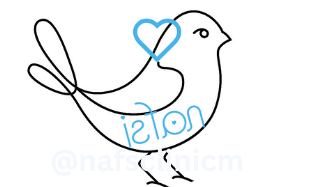
Mostly B’s (Sometimes)
You seem to experience some ADHD-like symptoms here and there. While it doesn’t seem to be a big issue now, certain situations (like stress or being super busy) might make it more noticeable.
Friendly Tips to Improve Focus & Organization:
- Try time-blocking: Set aside dedicated time for tasks to avoid getting stuck or distracted.
- Keep things neat: A tidy space can make it easier to focus without distractions.
- Get moving: A little physical activity can help boost focus and reduce restlessness.
Friendly Advice:
You’ve got this! If these patterns become more frequent or start interfering with daily life, there are plenty of strategies to help you manage them. 🌟
Note: For personalized tips, contact our clinic to make an appointment today❣️
. Click the link below to talk to a therapist🔗
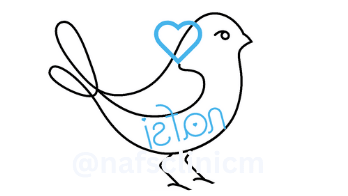
Mostly C’s (Often)
It sounds like ADHD symptoms may play a regular role in your life. Things like focusing, staying organized, and managing impulsivity might be a challenge for you, making daily tasks feel a bit tougher.
Friendly Tips for Managing ADHD Symptoms:
- Break things down: Divide large tasks into smaller steps so they don’t feel overwhelming.
- Plan ahead: A daily planner can be a lifesaver for keeping track of important tasks.
- Take regular breaks: Short, frequent breaks can help you recharge and refocus during long tasks.
Friendly Advice:
If you find these symptoms making life more difficult, talking to a healthcare professional can help you explore ways to manage them better. You’re not alone! 💪
Note: Ready to take the next step?
Contact our clinic to make an appointment today❣️
. Click the link below to talk to a therapist🔗
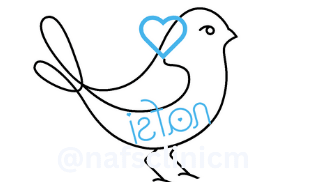
Mostly D’s (Very Often)
It seems like ADHD symptoms are a big part of your daily life. Whether it’s staying focused, keeping organized, or managing emotions, these symptoms might be making things feel overwhelming. But don’t worry—there’s plenty of help out there!
Friendly Tips for Making Life Easier:
- Set a routine: Structured routines can bring some calm and order to your day.
- Use reminders: Alarms, checklists, and visual cues can keep you on track.
- Talk it out: If managing emotions feels tough, it’s great to talk to someone you trust about how you’re feeling.
Friendly Advice:
If ADHD symptoms are getting in the way of your life, seeking professional help can make a world of difference. With the right support, things can get much easier! 🌈
Note: When you’re ready 💫
Contact our clinic to make an appointment today❣️
. Click the link below to talk to a therapist🔗
